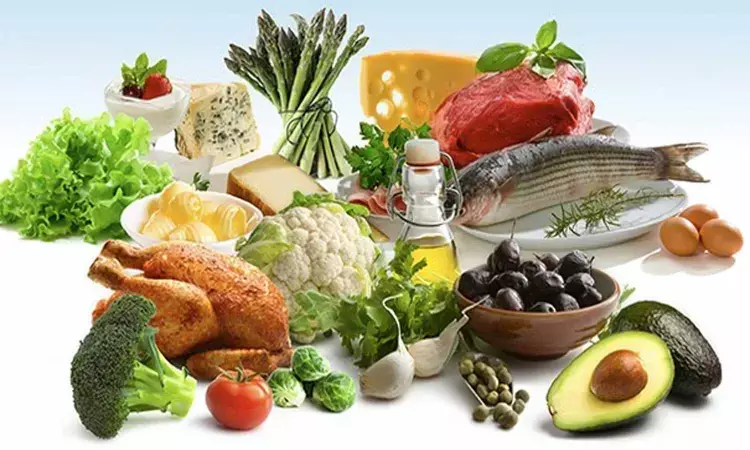- Home
- Medical news & Guidelines
- Anesthesiology
- Cardiology and CTVS
- Critical Care
- Dentistry
- Dermatology
- Diabetes and Endocrinology
- ENT
- Gastroenterology
- Medicine
- Nephrology
- Neurology
- Obstretics-Gynaecology
- Oncology
- Ophthalmology
- Orthopaedics
- Pediatrics-Neonatology
- Psychiatry
- Pulmonology
- Radiology
- Surgery
- Urology
- Laboratory Medicine
- Diet
- Nursing
- Paramedical
- Physiotherapy
- Health news
- Fact Check
- Bone Health Fact Check
- Brain Health Fact Check
- Cancer Related Fact Check
- Child Care Fact Check
- Dental and oral health fact check
- Diabetes and metabolic health fact check
- Diet and Nutrition Fact Check
- Eye and ENT Care Fact Check
- Fitness fact check
- Gut health fact check
- Heart health fact check
- Kidney health fact check
- Medical education fact check
- Men's health fact check
- Respiratory fact check
- Skin and hair care fact check
- Vaccine and Immunization fact check
- Women's health fact check
- AYUSH
- State News
- Andaman and Nicobar Islands
- Andhra Pradesh
- Arunachal Pradesh
- Assam
- Bihar
- Chandigarh
- Chattisgarh
- Dadra and Nagar Haveli
- Daman and Diu
- Delhi
- Goa
- Gujarat
- Haryana
- Himachal Pradesh
- Jammu & Kashmir
- Jharkhand
- Karnataka
- Kerala
- Ladakh
- Lakshadweep
- Madhya Pradesh
- Maharashtra
- Manipur
- Meghalaya
- Mizoram
- Nagaland
- Odisha
- Puducherry
- Punjab
- Rajasthan
- Sikkim
- Tamil Nadu
- Telangana
- Tripura
- Uttar Pradesh
- Uttrakhand
- West Bengal
- Medical Education
- Industry
Not all dietary fiber is created equal: cereal fiber better than fruit or vegetable fibers to lower inflammation

The research includes data from a large and well-characterized prospective cohort of elderly individuals, with detailed data on dietary intake, inflammation, and incidence of CVD. The research confirmed previously observed associations between dietary fiber and CVD and extended those investigations to include the source of the fiber, the relationship of fiber with multiple inflammatory markers, and to test whether inflammation mediated the relationship between dietary fiber and CVD.
Of the 4125 adults enrolled in the Cardiovascular Health Study from 1989 to 1990 participants received a food frequency questionnaire that was administered to those without prevalent CVD at enrollment and then were followed up visits for development CVD (stroke, myocardial infarction, and atherosclerotic cardiovascular death) through June 2015. Blood samples were assessed for markers of inflammation.
"Higher intakes of dietary fiber is associated with lower CVD risk. A common hypothesis has been that higher fiber intakes reduce inflammation, subsequently leading to lower CVD risk" said Rupak Shivakoti, PhD, assistant professor of epidemiology at Columbia Mailman School. 'With findings from this study, we are now learning that one particular type of dietary fiber-cereal fiber-but not fruit or vegetable fiber was associated with lower inflammation. With findings from this study we now are learning that cereal fiber has the potential to reduce inflammation and will need to be tested in future interventional studies."
Although there are data to suggest that fiber in general might have anti-inflammatory effects by improving gut function, modifying diet and satiety (eg, reduced fat and total energy intake), and improving lipid and glucose profile metabolism, why cereal fiber but not vegetable or fruit fiber is associated with lower inflammation is not clear and warrants further investigation, noted Shivakoti. Further, he notes that it is not clear whether cereal fiber per se or other nutrients in foods rich in cereal fiber are driving the observed relationships.
"Additionally, we learned that inflammation had only a modest role in mediating the observed inverse association between cereal fiber and CVD," observed Shivakoti. "This suggests that factors other than inflammation may play a larger role in the cereal fiber-associated reduction in CVD and will need to be tested in future interventions of specific populations.
For further information, visit here:
Dr Kamal Kant Kohli-MBBS, DTCD- a chest specialist with more than 30 years of practice and a flair for writing clinical articles, Dr Kamal Kant Kohli joined Medical Dialogues as a Chief Editor of Medical News. Besides writing articles, as an editor, he proofreads and verifies all the medical content published on Medical Dialogues including those coming from journals, studies,medical conferences,guidelines etc. Email: drkohli@medicaldialogues.in. Contact no. 011-43720751


